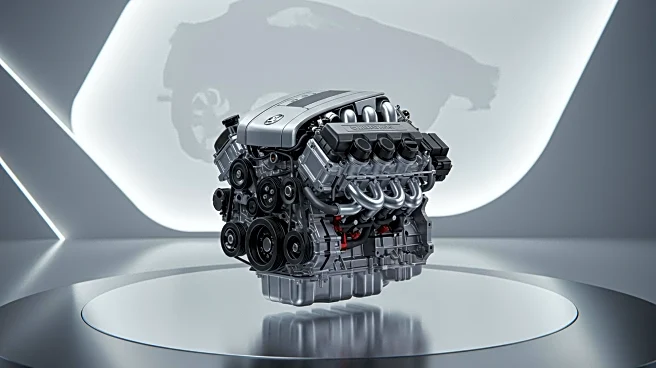What's Happening?
Mercedes-Benz USA is reportedly in discussions with BMW to purchase four-cylinder engines for its vehicles starting in 2027. This potential partnership aims to address high tariff costs associated with engines manufactured in China, which are not well-suited for plug-in hybrid technology. The engines in question, the turbocharged 2.0-liter B48, are versatile and can be used in various Mercedes models. This move comes as Mercedes adjusts its lineup due to slowing global electric vehicle uptake and revises its timeline for transitioning to EV-only by 2030. The company’s CEO has indicated that internal combustion technology will continue well into the 2030s.
Why It's Important?
The rumored partnership between Mercedes-Benz and BMW could have significant implications for the automotive industry, particularly in the U.S. By potentially establishing a shared engine plant in the U.S., Mercedes could sidestep tariffs, reducing costs for U.S.-bound models. This collaboration would mark a notable shift in the competitive landscape, as two major German luxury car manufacturers would share powertrains on a large scale. It highlights the challenges automakers face in adapting to changing market conditions and regulatory environments, especially concerning tariffs and the transition to electric vehicles.
What's Next?
If the partnership materializes, it could lead to increased collaboration between Mercedes-Benz and BMW, potentially influencing other automakers to consider similar alliances. The establishment of a shared engine plant in the U.S. would likely attract attention from political leaders and industry stakeholders, given its potential impact on local manufacturing and employment. Mercedes-Benz's continued reliance on internal combustion technology suggests ongoing investment in hybrid solutions, balancing the push towards electrification with market demands.









